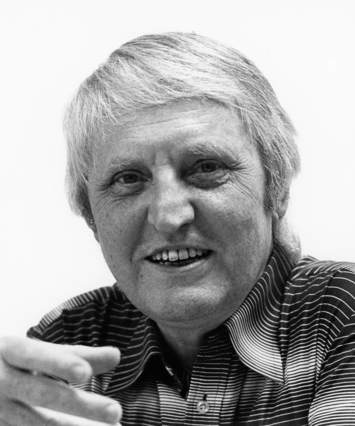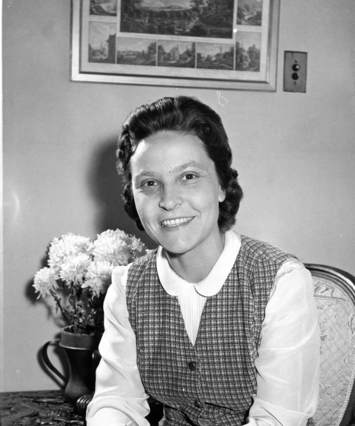A son tries to make sense of his father's faith
Remarque: ce film a des sous-titres / légendes disponibles. Cliquez sur la petite icône "CC" à l'intérieur de la vidéo pour sélectionner les sous-titres.
Film producer Hanno Krieg writes:
I began this film in an attempt to understand!
In 1994 I made a film about a group of young people patrolling the subways
of Berlin to fight against racism, sexism and violence called The Guardian Angels.
During the process of filming that "good youth-gang", I found that my
affinity with, as well as my skepticism towards, people with a mission in life, had its roots in my childhood, growing up in an "MRA-family".
In order to understand my opposing feelings I planned to work on a film about
the phenomenon Moral Re-Armament, or MRA. A lot of research followed, and I talked to other young people who grew up in "MRA families". I got in contact with David Belden's Forum (on MRA) and read all kind of books related to the theme. Finally, I decided that, in order to explain the movement, or articulate my point of view,
I first had to find out what attracted my father to MRA. Then what made my aunt work full time and what made them leave MRA in the 60’s. And finally, what made my father return to MRA.
.
Synopsis of the Film:
On hearing the news of Hitler's death, my father who had been
reared in Berlin as an "all trusting Nazi" believed his world had
collapsed around him. At that time he was recovering from a war wound in
Prague. Soon however my father would begin his search for a new perspective
in life.
With support from the US government, people from Moral Re-Armament utilized the ideological vacuum created by the "zero hour". The group concentrated on the
former Nazis and communists, intending to convert them to an ideological brand of Christianity, with success.
At one of the movement's meetings, my father met the Czech John Pribram who challenged him to fight together with him from that moment on for a better world.
And my father took up this offer.
In the 50s, the movement expanded and even my aunt joined it. Over the following years Moral Re-Armament developed into an instrument
of the Cold War. However ultimately the movement would fail in its efforts
to create the prototype for a new kind of human being.
My father and my aunt talk about their paths within the movement, and
through this about the functions played by guilt, confession, forgiveness,
memory and belief.
Camera Frank Clausen,
of Berlin to fight against racism, sexism and violence called The Guardian Angels.
During the process of filming that "good youth-gang", I found that my
affinity with, as well as my skepticism towards, people with a mission in life, had its roots in my childhood, growing up in an "MRA-family".
In order to understand my opposing feelings I planned to work on a film about
the phenomenon Moral Re-Armament, or MRA. A lot of research followed, and I talked to other young people who grew up in "MRA families". I got in contact with David Belden's Forum (on MRA) and read all kind of books related to the theme. Finally, I decided that, in order to explain the movement, or articulate my point of view,
I first had to find out what attracted my father to MRA. Then what made my aunt work full time and what made them leave MRA in the 60’s. And finally, what made my father return to MRA.
.
Synopsis of the Film:
On hearing the news of Hitler's death, my father who had been
reared in Berlin as an "all trusting Nazi" believed his world had
collapsed around him. At that time he was recovering from a war wound in
Prague. Soon however my father would begin his search for a new perspective
in life.
With support from the US government, people from Moral Re-Armament utilized the ideological vacuum created by the "zero hour". The group concentrated on the
former Nazis and communists, intending to convert them to an ideological brand of Christianity, with success.
At one of the movement's meetings, my father met the Czech John Pribram who challenged him to fight together with him from that moment on for a better world.
And my father took up this offer.
In the 50s, the movement expanded and even my aunt joined it. Over the following years Moral Re-Armament developed into an instrument
of the Cold War. However ultimately the movement would fail in its efforts
to create the prototype for a new kind of human being.
My father and my aunt talk about their paths within the movement, and
through this about the functions played by guilt, confession, forgiveness,
memory and belief.
Camera Frank Clausen,
Sound Bernd Konrad,
Editor Hanno Krieg,
Music Michael Doehnert,
Music Michael Doehnert,
Narrator Stefan Canham.
Langue du film
Deutsch
Sous-titres)
English
Durée du film
55 minutes
Type de film
Autorisation de publication
L'autorisation de publication fait référence aux droits de FANW de publier l'intégralité du contenu vidéo de ce film sur ce site web.


